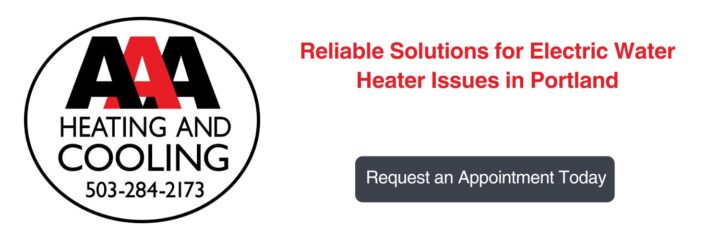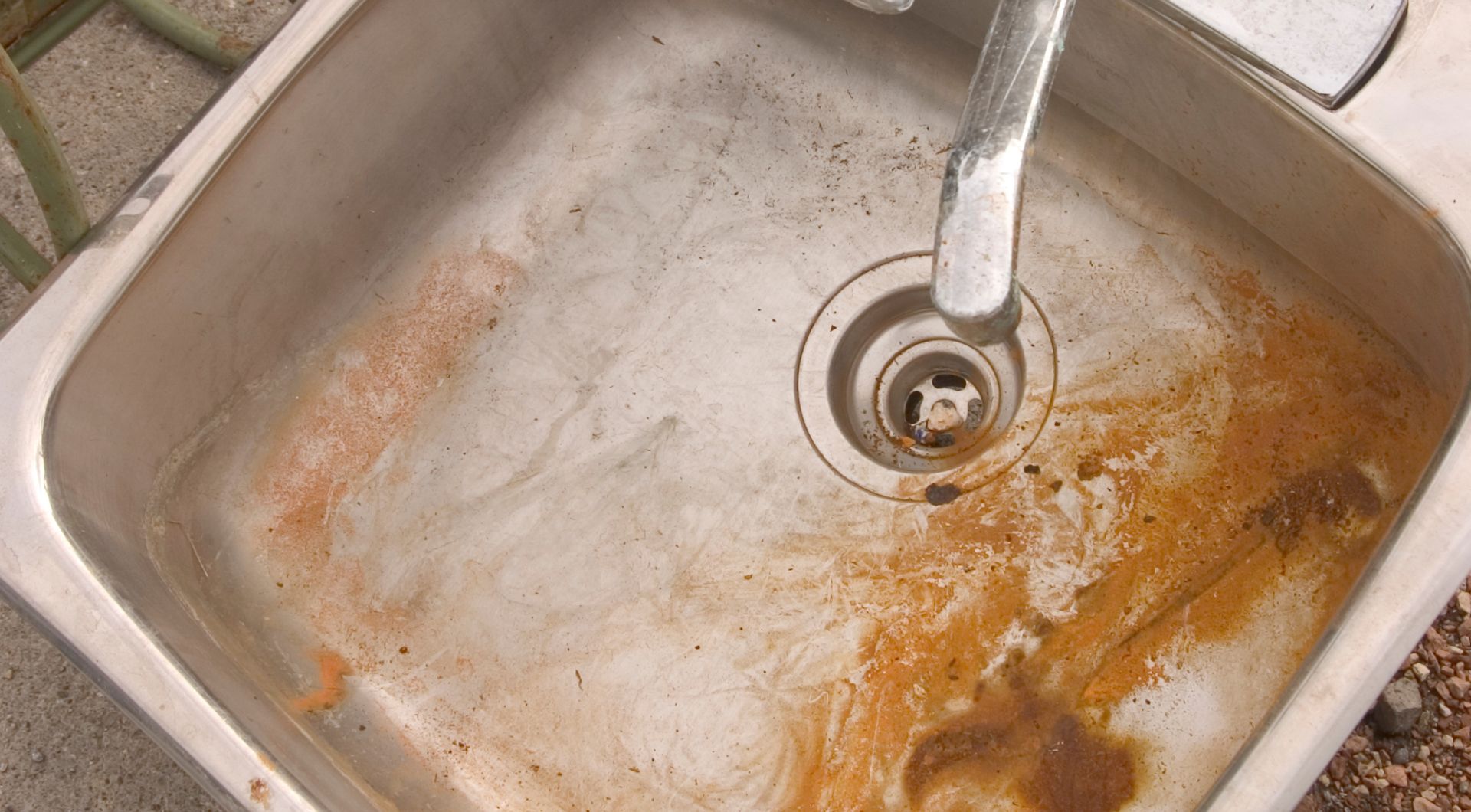
Your family just walked in the door after a weekend full of youth sports events. The uniforms are covered in mud. The kids are, too. The youngest turns on the shower and yells that the water is brown. You sigh and head for the basement.
If you have no idea what’s going on or how to fix it, keep reading. You’ll learn why troubleshooting electric water heater problems is important, the most common issues, what to try to fix, and when you should call a professional.
Table of Contents
- Why Electric Water Heater Troubleshooting Is Important
- How To Troubleshoot Electric Water Heater Problems
- 10 Common Electric Water Heater Problems
- Frequently Asked Questions About Electric Water Heater Problems Troubleshooting
- Safety While Troubleshooting Electric Hot Water Heater Problems
- End Water Heater Worries With AAA Heating & Cooling
Why Electric Water Heater Troubleshooting Is Important
An electric water heater is a large investment that should last for years to come. But as with anything, with age comes performance issues. To increase the lifespan of your home’s water heater and prevent costly fixes in the future, it’s essential not to ignore anything strange you might notice. You’ll want to pay attention to even the little things because catching them early can save you a ton of money before they turn into much larger headaches.
We all need hot water to live our best and healthiest lives. It is essential to keeping everything clean — clothes, dishes, and our bodies. Uncleanliness often leads to sickness and unhappiness, so don’t let small issues turn into big problems later on.
How To Troubleshoot Electric Water Heater Problems
If something doesn’t seem quite right, the first and easiest things to do are check that the circuit breaker hasn’t tripped and that the thermostat temperature is right. It’s also a good idea to press the reset button and check for any obvious leaks.
Before you start trying to diagnose your electric water heater’s issue, remember that they run on high-voltage electricity and need to be treated properly. If the problem is something you can’t handle yourself or aren’t sure about, call a professional. Your safety always comes first.
Let the pros from AAA Heating & Cooling handle your electric water heater problems. We’ve got the know-how and more than six decades of experience under our belts.
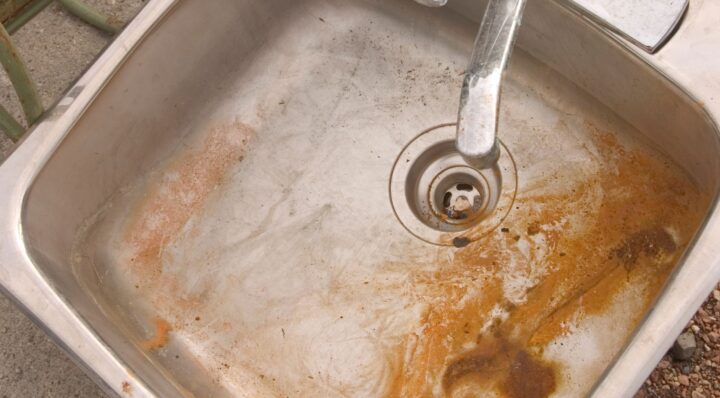
10 Common Electric Water Heater Problems
Before you start planning to sell your kidney to pay for a whole new water system, check the likely culprits. Most water heater issues fall into a handful of predictable categories.
Remember to disconnect the power to the water heater before attempting to troubleshoot.
#1: No Hot Water at All
If you’re not getting any hot water, it’s likely your unit is out of power, or a heating coil has gone bad.
First, check to see if the circuit is tripped. If so, reset it to the “On” position. That should solve the power issues.
If the breaker is where it’s supposed to be, it’s time to check the heating element by resetting the high-temperature limit on the heater.
Turn off the power at the service panel, then remove the access panel cover and press the high-temperature reset button (it’s usually red).
It’s time to call a pro if your hot water doesn’t come back.
#2: Water Isn’t Hot Enough
If your hot water isn’t hot enough, it’s likely there’s something wrong with your thermostat or too much sediment has built up in the bottom of the tank.
The first thing to check is if your thermostat is working correctly and is set to the right temperature. An electric water heater’s factory default setting is 120°F, but some prefer their water hotter.
To check the thermostat, disconnect the power from the water heater — safety first! Then, remove the access panel and set the temperature to 140°F. Put the panel back in place, and reconnect the power. Wait about an hour, then turn the hot water on again. If the temperature rises, your heater’s thermostat is working correctly.
If the temperature isn’t working, flush the tank entirely of all water and sediment, and refill it. To do this:
- Attach one end of a standard garden hose to the valve at the bottom of the tank, and thread the other end outside the house.
- Open the temperature pressure valve at the top of the tank and the drain valve at the bottom where the hose is attached.
- Let the tank empty completely, then close both valves, remove the hose, and turn on the water and electric supply.
- After it refills, wait another hour and recheck the temperature.
If neither of those fixes the problem, it’s time to call the pros.
#3: Water Is Too Hot
If your water is too hot, you’ll want to disconnect the power — safety’s important!
Remove the access panel and set the water temperature to 120°F, then reconnect the power.
After an hour, if the water hasn’t cooled down, it’s time for a professional diagnosis.
#4: Strange Noises
Your water heater isn’t possessed! If you hear a rumbling, popping, or a high-pitched whine, it’s like the water in the tank is boiling … no ghostly inhabitants, we promise!
Sediment build-up at the bottom of the tank can make it overheat and boil the water.
To make the noises stop:
- Turn off both the power and the water supply — be safe!
- Attach one end of a standard garden hose to the valve at the bottom of the tank, and thread the other end outside the house or to a drain. Don’t flood your basement.
- Open the temperature pressure valve at the top of the tank and the drain valve at the bottom, where the hose is attached.
- Let the tank empty completely. Then close both valves, remove the hose, and turn on the water and electric supply.
If the noises continue, it’s time to call AAA Heating & Cooling, not an exorcist.
#5: Discolored or Rusty Water
When the water coming out of your faucet looks a little off — or a lot off — it means there’s probably something corroded inside the tank.
The most likely culprit is the anode rod. It’s installed in the tank to draw the corrosive material to it, protecting the sides of the tank from rusting by rusting itself.
You’ll need a trained pro to replace the rod for you.
#6: Leaking Water Heater
If your water heater is leaking, it may be because of a loose connection or a leaking valve.
Your pressure valve may have failed due to age or incorrect installation, or because it is loose.
If your drain valve leaks, it may just need to be tightened. If that doesn’t fix the issue, it will need to be replaced.
A loose inlet or outlet connection is the easiest leak to fix. Tighten the connections with a wrench, and that should solve the problem.
If none of those do it, then it’s time to call AAA Heating & Cooling to take a look.
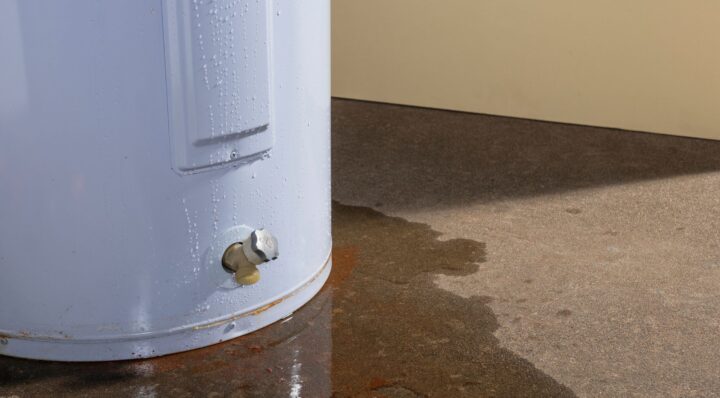
#7: Low Water Pressure
When your hot water doesn’t come out of the faucet as fast as the cold water, you’ve got low water pressure. This can be caused by:
- Hard water build up at the valves into and out of the tank
- Sediment build up in the bottom of the tank
- Kinked water heater hoses
- Water distribution tubes that are too small for the house
- Too many pipes with sharp bends
- Low water pressure from the city pipes into the house
#8: Foul-Smelling Water
Do you smell rotten eggs when you turn on your hot water faucet?
If yes, you probably have bacteria building up in your tank. It usually happens when the hot water in the tank has been sitting at a constant temperature for too long.
Flush the tank completely and allow cold water to run through it while the hose is still attached to flush out any remaining bacteria. Once the water coming out is clear, you can stop draining.
The water coming out of the faucet should now be odorless.
#9: Frequent Cycling
If your water heater keeps turning on and off rather than staying on consistently, it’s likely you have a faulty thermostat that isn’t reading the temperature correctly, or a malfunctioning heating element that overheats or fails intermittently.
If your unit has a display, look for any error codes. If it doesn’t, listen for popping or hissing sounds that could mean sediment buildup — that pesky stuff again — and check the breaker box to see if the cycling is tripping anything.
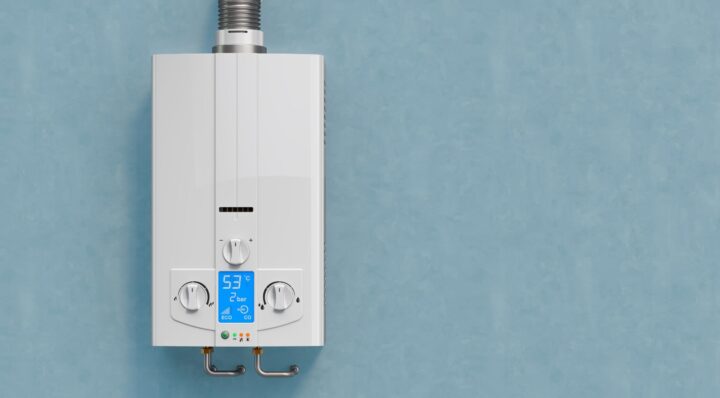
#10: Limescale Buildup
Hard water is the main reason for limescale. It contains minerals that can cause buildups and blockages in plumbing and appliances. The water heater is the most likely to experience buildup, because as the water heats, some evaporates, leaving the minerals behind and increasing the concentration in the water still in the tank.
The most common ways to tell if you have excessive limescale include:
- Rusty-colored water that smells like rotten eggs
- Banging and clanking noises — not ghosts!
- A heating element that no longer works
Frequently Asked Questions About Electric Water Heater Problems Troubleshooting
What Would Cause an Electric Water Heater To Stop Working?
The most common causes for electric water heater problems are:
- A tripped circuit breaker
- A faulty thermostat
- A burned-out heating element
What Is the Most Common Type of Electrical Fault in a Water Heater?
A burned-out heating element is the most common electrical fault in a water heater, usually due to natural wear and tear or sediment buildup.
Loose wiring or a faulty thermostat can also be common issues. They can stop the heater from properly regulating the temperature or turning on at all.
How Can You Be Safe While Troubleshooting Electric Water Heater Problems?
Remember, safety first! Here’s how to avoid injuries while troubleshooting:
- Always shut the power off at the breaker before doing any kind of work on the water heater. They pack a voltage punch.
- Avoid standing water because electricity travels through water.
- Wear gloves because water heaters can be too hot to handle if they’re not cooled down enough.
End Water Heater Worries With AAA Heating & Cooling
Troubleshooting electric water heater problems can raise anyone’s temper. There are some times when the issues are easily fixed and others when a professional is your best bet.
We’ve been supplying the Portland-metro area with expert HVAC services for more than 60 years. We’re a family business helping families.
Whether your water heater is on the fritz, your furnace is blowing cold air, or you’re dealing with any one of a million other heating and cooling issues, call us at AAA Heating & Cooling.
